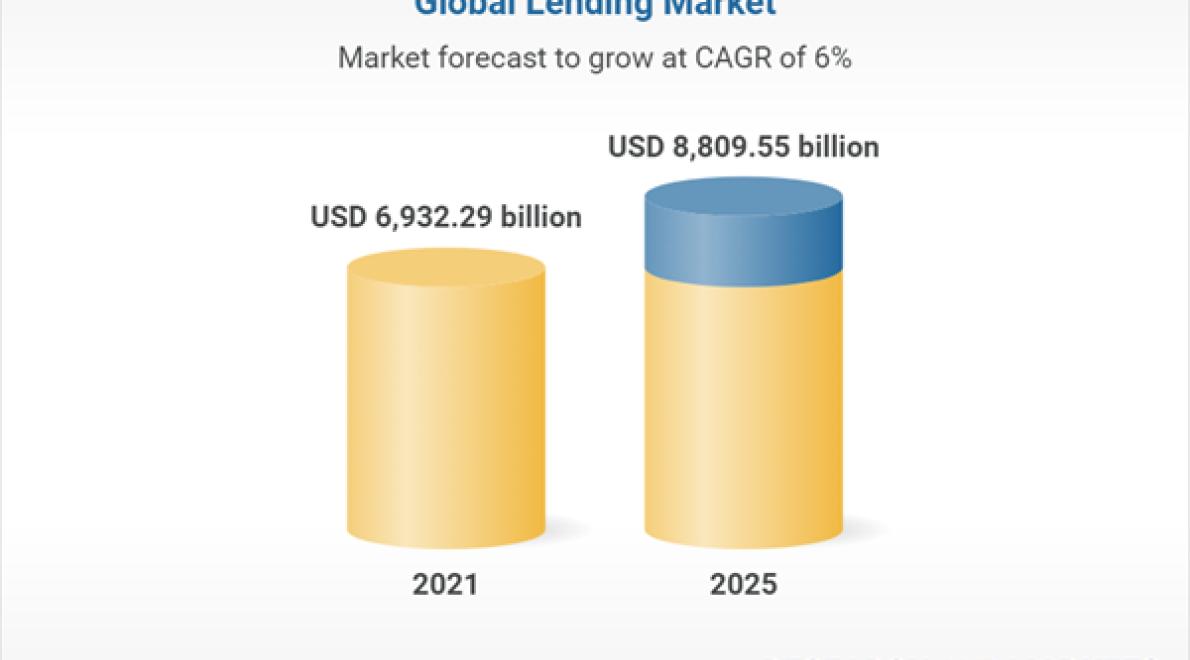In the traditional banking system, when you take out a loan, the bank will ask for some form of collateral – typically in the form of your house or car. If you default on the loan, the bank can repossess your collateral to recoup their losses. In the world of cryptocurrency, things work a bit differently. Cryptocurrency loans are often called "under collateralized" because they typically don't require any form of collateral. This can be seen as a good thing or a bad thing, depending on how you look at it. On the one hand, it's easier to get a loan if you don't have to put up any collateral. On the other hand, it's riskier for the lender because they have no way to recoup their losses if you default on the loan. Under collateralized loans are becoming more popular in the world of cryptocurrency as more people are looking for ways to get involved in this new and exciting market. Whether or not these loans are a good idea is still up for debate.

There is a lot of talk about under-collateralized loans in the crypto space. What does this mean and why is it a problem?
Under-collateralized loans are when a loan has not been fully secured by the assets being lent against. This can be a problem because if the assets that were supposed to secure the loan are not available, then the lender could face financial difficulties. This could lead to a loss of money for the lender and could also cause the price of the asset being lent against to decline.
This is a significant issue because it could lead to a number of problems for the crypto space. Firstly, it could lead to a decline in the value of assets that are being used as collateral. This could impact the whole crypto market, leading to a decline in prices. Secondly, it could lead to financial difficulties for lenders who are under-collateralized. This could lead to bankruptcy or other financial difficulties. Finally, it could lead to a decline in the value of cryptocurrencies themselves, as investors could become concerned about the security of these investments.
Cryptocurrencies are digital or virtual tokens that use cryptography to secure their transactions and to control the creation of new units. Cryptocurrencies are decentralized, meaning they are not subject to government or financial institution control.
Cryptocurrencies are also highly volatile. This means that the value of a cryptocurrency can change quickly and unpredictably. This volatility can make it difficult for people to invest in cryptocurrencies and can also lead to the loss of money if they invest in a cryptocurrency that becomes worthless.
Under-collateralized loans are a type of loan where the amount of collateral that is required to be posted by the borrower is not enough to cover the total amount of the loan. This can lead to the loan being defaulted on, which can have serious consequences for the borrower, including bankruptcy.

There are pros and cons of under-collateralized loans in cryptocurrency.
The pros of under-collateralized loans in cryptocurrency include that borrowers can get lower interest rates and that the loans are not subject to traditional banking regulations.
However, there are also cons to under-collateralized loans in cryptocurrency. These include the risk of default, the volatility of cryptocurrency prices, and the lack of recourse if a borrower fails to repay the loan.
There are a few benefits and risks associated with under-collateralized loans in cryptocurrency.
Benefits of Under-Collateralized Loans in Cryptocurrency
1. Low interest rates.
Since cryptocurrency loans are not backed by traditional assets, lenders can offer lower interest rates than traditional loans. This can be a major advantage for borrowers, who may be able to get a loan at a significantly lower cost than traditional options.
2. Easy access to funds.
Since cryptocurrency loans do not rely on traditional banking systems, borrowers can easily access the funds they need without having to go through lengthy processes or wait for long periods of time. This can be especially helpful for people who need quick access to money, but may be unable to get a traditional loan because of their credit history.
3. Increased liquidity.
Since cryptocurrency loans are not backed by traditional assets, they are considerably more liquid than traditional loans. This means that they are easier to trade and can be converted into other currencies more quickly. This can be a major advantage for people who need to quickly access funds, or who want to trade their assets quickly and easily.
4. Greater security.
Since cryptocurrency loans are not backed by traditional assets, they are considerably more secure than traditional loans. This means that the lender is less likely to default on the loan, and the borrower is less likely to lose all of their assets in the event of a default.
5. Reduced risk of fraud.
Since cryptocurrency loans are not backed by traditional assets, there is little chance of fraud happening. This reduces the risk of someone stealing your money, and allows you to feel more confident about the transaction.
6. Greater transparency and security.
Since cryptocurrency loans are not backed by traditional assets, they are considerably more transparent and secure than traditional loans. This means that you can easily see how much money you are borrowing, and you can trust that the lender will actually pay back the loan.
7. Reduced environmental impact.
Since cryptocurrency loans are not backed by traditional assets, they have a smaller environmental impact than traditional loans. This means that they can help reduce the amount of carbon dioxide that is released into the atmosphere, and they can reduce the amount of waste that is created in the process.
Risks of Under-Collateralized Loans in Cryptocurrency
1. Higher risk of default.
Since cryptocurrency loans are not backed by traditional assets, they are considerably more risky than traditional loans. This means that the borrower is more likely to default on the loan, and they may lose all of their assets in the event of a default.
2. Higher risk of fraud.
Since cryptocurrency loans are not backed by traditional assets, there is a greater chance of fraud happening. This can lead to someone stealing your money, and can damage your reputation if it happens in the public eye.
3. Increased risk of financial instability.
Since cryptocurrency loans are not backed by traditional assets, they are more likely to lead to financial instability. This means that the value of the currency could decline, and you could lose all of your money if the currency crashes.
4. Increased risk of price volatility.
Since cryptocurrency loans are not backed by traditional assets, they are more likely to experience significant price volatility. This means that the value of the currency could change rapidly, and you could lose a significant amount of money if you don't have enough protection against price fluctuations.

There is no clear answer to this question. Some people may choose to get an under-collateralized loan in cryptocurrency because they believe it is a safe investment, while others may feel that the high volatility of the market makes it a risky proposition. Ultimately, it is up to the individual to decide whether or not they think an under-collateralized loan in cryptocurrency is a good idea.
When a cryptocurrency is under-collateralized, this means that the amount of collateral pledged to secure the loan is not enough to cover the full value of the loan. This can lead to a number of problems, including:
1. The cryptocurrency could be seized by the lender in the event of a default.
2. The cryptocurrency could be devalued as a result of the lack of collateral.
3. The cryptocurrency could be at risk of being stolen.
4. The cryptocurrency could be at risk of being frozen.
5. The currency could be at risk of being lost altogether.
6. The cryptocurrency could be at risk of being hacked.
7. The cryptocurrency could be at risk of being taken over by a rival company.
8. The cryptocurrency could be at risk of being lost altogether due to a technical issue.
9. The cryptocurrency could be at risk of being lost altogether due to a financial crisis.
10. The cryptocurrency could be at risk of being seized by the government.
11. The cryptocurrency could be at risk of being lost altogether due to market volatility.

One of the major risks of cryptocurrency is the lack of collateral to back up loans. This means that anyone who takes out a loan in cryptocurrency may not be able to recover their investment if the value of the cryptocurrency falls.
This is especially a concern for small businesses and individuals who may not have a good track record with securing loans in traditional currency. If the value of the cryptocurrency falls, these borrowers may find it difficult to repay their loans.
Another potential risk of under-collateralized loans is the possibility of fraud. If a borrower does not have enough cryptocurrency to repay a loan, they may be vulnerable to fraudsters who will try to take their money without providing the promised collateral.
If a fraudster is successful in taking the borrower's cryptocurrency, they may be able to sell it on the open market and make a significant profit. This could lead to a significant financial loss for the borrower, and could damage their reputation in the cryptocurrency community.
There are a few benefits to under-collateralized loans in cryptocurrency. One is that the loan can be secured by just the cryptocurrency itself, rather than traditional collateral like real estate or stocks. This reduces the risk of the loan being defaulted on, and it also makes it easier for borrowers to find lenders who are willing to provide them with a loan. Additionally, borrowers who have under-collateralized loans can benefit from a lower interest rate than borrowers who have more traditional loans.
Cryptocurrencies are digital or virtual tokens that use cryptography to secure their transactions and to control the creation of new units. Cryptocurrencies are decentralized, meaning they are not subject to government or financial institution control.
Under-collateralized loans are a type of credit product that uses digital assets as collateral. When a borrower makes a loan, the lender typically requires a security, such as cryptocurrency, to back the loan. The risk of default is reduced because the value of the digital asset held as collateral is greater than the amount of the loan.
The safety of under-collateralized loans in cryptocurrency depends on the security of the digital assets used as collateral. If the digital assets are stolen or compromised, the lender could lose all of the money that was loaned. Additionally, if the value of the digital assets falls below the value of the loan, the borrower could default on the loan.
There is no one-size-fits-all answer to this question, as the appropriateness of an under-collateralized loan for your cryptocurrency needs depends on a variety of factors specific to your individual situation. However, if you are seeking to secure a high-yield investment with little risk, an under-collateralized loan may be a good option for you.